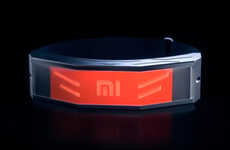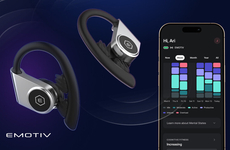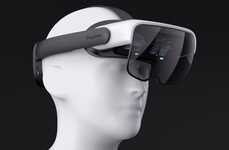
EEG Technology Lets You Use Your Mind to Make Sounds
Ellen Smith — July 14, 2017 — Unique
References: seattletimes & newatlas
This mind-reading musical instrument can be played with the power of thought.
Using EEG signals, scientists have successfully created a machine that responds to a person's thoughts with sounds. The machine can detect the movement of a person's thoughts, much like it can detect a physical movement -- triggering the device to create a sequence of noise. Although EEG technology isn't new, Neuroscientist Thomas Deuel claims this is the first machine to respond proactively to brainwaves with sound.
As a musician and neurologist, Deuel has seen patients lose their ability to play musical instruments after suffering a stroke. If further developed, EEG technology can be harnessed to quicken the rehabilitation and communicative abilities to both stroke patients and those who live with motor disabilities.
Using EEG signals, scientists have successfully created a machine that responds to a person's thoughts with sounds. The machine can detect the movement of a person's thoughts, much like it can detect a physical movement -- triggering the device to create a sequence of noise. Although EEG technology isn't new, Neuroscientist Thomas Deuel claims this is the first machine to respond proactively to brainwaves with sound.
As a musician and neurologist, Deuel has seen patients lose their ability to play musical instruments after suffering a stroke. If further developed, EEG technology can be harnessed to quicken the rehabilitation and communicative abilities to both stroke patients and those who live with motor disabilities.
Trend Themes
1. Mind-reading Musical Instruments - The development of EEG technology in music instruments is an opportunity for companies to create disruptive innovations in the music industry.
2. EEG Rehabilitation Devices - The use of EEG technology for rehabilitation purposes presents an opportunity for companies to create innovative devices to help stroke victims and individuals with motor disabilities.
3. Interactive Brainwave Technology - The development of interactive technology that responds to EEG signals presents opportunities for companies in the fields of gaming, virtual reality, and other entertainment industries.
Industry Implications
1. Music - The use of EEG technology in musical instruments presents opportunities for innovation in the music industry such as brainwave-controlled instruments or new musical experiences.
2. Medical Devices - The development of EEG technology rehabilitation devices could disrupt the medical device industry and provide new solutions for stroke patients and individuals with motor disabilities.
3. Entertainment - The development of interactive brainwave technology could create disruptive innovation opportunities in the gaming, virtual reality, and other entertainment industries.
1.4
Score
Popularity
Activity
Freshness























